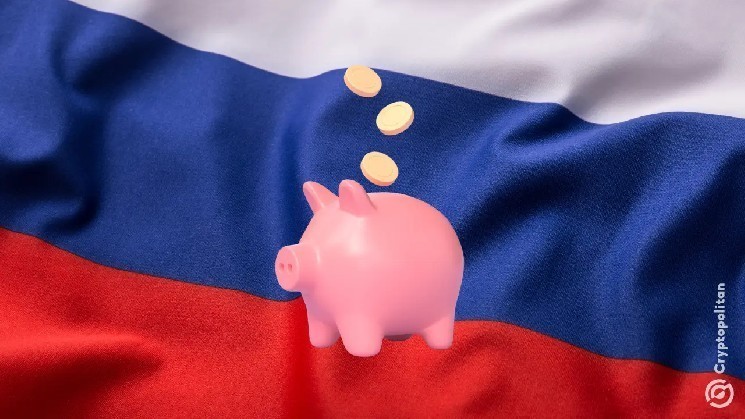Crypto payments between Russia and its partners in trade this year are approaching 1 trillion rubles in fiat equivalent, revealed a high-ranking official in Moscow.
The assessment comes less than a year after President Putin gave the nod to cross-border settlements in cryptocurrency to help Russian companies circumvent Western sanctions.
Penalties imposed over his invasion of Ukraine have seriously restricted Russia’s access to global finances and limited its options to make payments through traditional financial channels.
Russia counting crypto changing hands in foreign trade
The total amount of cryptocurrency transfers between the Russian Federation and other countries since the start of 2025 may reach 1 trillion rubles (over $12.7 billion), according to Anatoly Aksakov, head of the financial markets committee at the State Duma, the lower house of parliament in Moscow.
Commenting on the value of Russian crypto transactions with foreign counterparties in an interview with Russia’s official news agency, TASS, Aksakov stated:
“I admit, this is already about 1 trillion rubles.”
The Russian lawmaker was quick to emphasize, however, that decentralized digital currencies such as Bitcoin should be employed exclusively for international payments.
“We firmly stand on the position that cryptocurrencies can only be used for external settlements. We have legalized this option within the framework of the experimental legal regime,” the parliamentarian insisted.
Aksakov was referring to Russia’s special legal regime for crypto operations that allows Russian firms to buy and use digital coins to pay trading partners abroad and accept crypto for exports.
“Cryptocurrencies are purchased on the domestic market, including at exchange auctions. But at the same time, cryptocurrency should only be used for foreign trade transactions, for example, when delivering goods to Russia,” he elaborated.
Anatoly Aksakov was discussing crypto payments on the eve of the St. Petersburg International Economic Forum (SPIEF), which will be held June 18-21. Its motto this year is “Common Values – the Basis for Growth in a Multipolar World.”
The annual event, first launched in 1997, has been held under the auspices of the Russian President for over two decades. It gathers thousands of participants, including heads of state and government and business leaders from more than 100 countries.
Moscow not ready to legalize domestic crypto payments
Russia is yet to comprehensively regulate cryptocurrencies, but its financial regulators, most notably the Central Bank of Russia and the Finance Ministry, have been opposed to legalizing their free circulation in the Russian economy.
The concept of creating an experimental legal regime (ELR) to facilitate their limited use in cross-border payments, under strict government oversight, was introduced with a law signed by Vladimir Putin in August 2024.
Using anything else than the Russian ruble, which is the only legal tender in the country, as a means of payment outside the ELR would go against the law, which bans “money surrogates.”
Earlier in June, a report by the Russian-language edition of Forbes revealed that the federal government plans to punish those who use cryptocurrencies for payments in Russia with seizure and fines. These can reach 1 million rubles for businesses and 200,000 rubles for private citizens.
Also, this month, Russia’s monetary authority urged commercial banks to exert tighter control over transactions linked to crypto trading. The call came after the adoption of a law allowing credit institutions to limit monthly transfers and block accounts of persons suspected of fraudulent activities.
Russians have tripled their crypto investments over the past three years, according to the Bank of Russia’s own consumer finance survey released in April. However, the regulator wants to limit investor access, allowing only “highly qualified” investors to put money into the digital assets. It authorized the offering of crypto derivatives to this category of professionals and rich Russians at the end of May.
Read the full article here
